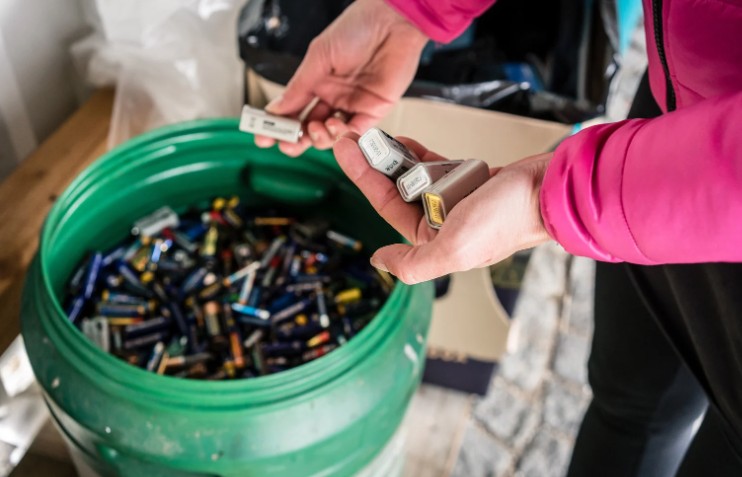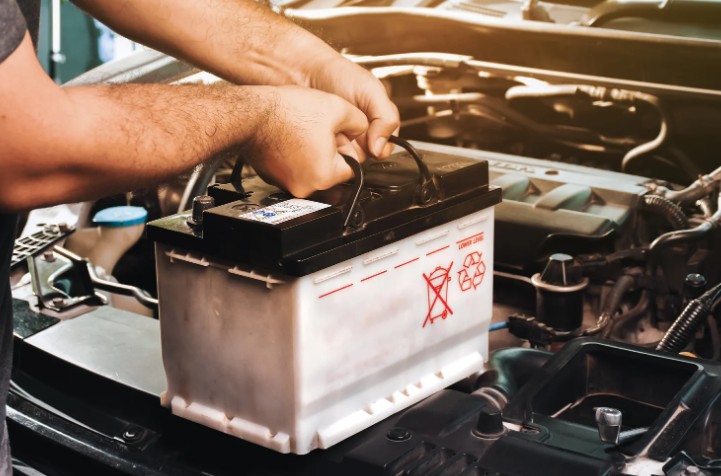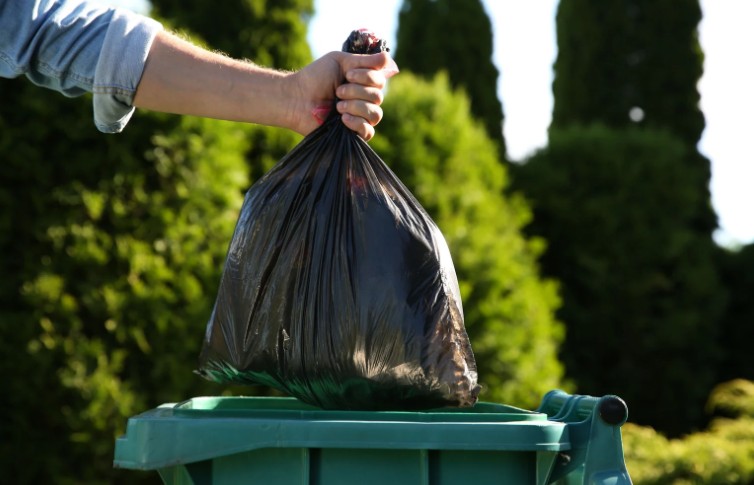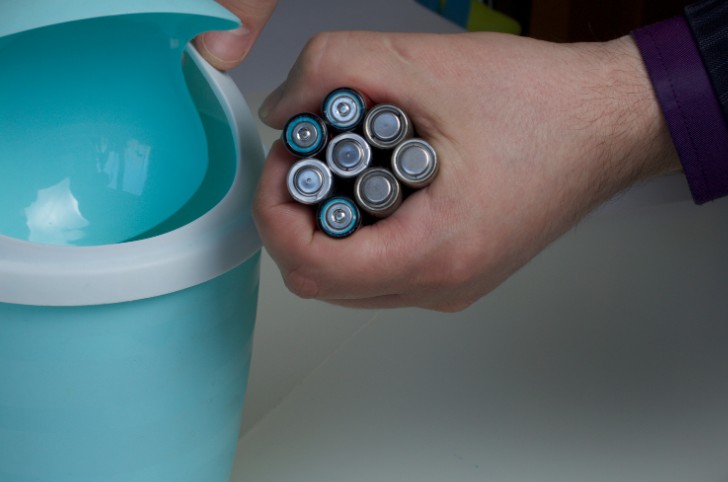- Why Is Proper Battery Disposal So Important?
- What Types of Batteries Do I Need to Dispose of?
- Where Can I Recycle Batteries in the UK?
- How Do I Prepare Batteries for Safe Disposal?
- How to Dispose of Batteries? - Safe Eco - Friendly Ways
- What Are Some Eco-Friendly Tips for Battery Use and Disposal?
- What Are the List Of Battery Types & Disposal Methods?
- What are the Do’s on Battery Disposal?
- What are the Dont’s on Battery Disposal?:
- What Frequently Asked Questions On How to Dispose of Batteries?
Batteries power everything from our TV remotes to our electric cars, but when they’re spent, they don’t just vanish into thin air.
I used to think tossing them into the bin was no big deal—until I realised how much damage that one small action could cause to the environment and public health.
In this guide on how to dispose of batteries, I’ll walk you through the safest and most eco-friendly ways to dispose of batteries in the UK, drawing from personal experience, government advice, and best recycling practices.
Let’s break it down, step by step.
Why Is Proper Battery Disposal So Important?
What happens if I throw batteries in the bin?
When I learned that used batteries contain heavy metals like lead, mercury and cadmium, it shocked me.
Throwing them in the general waste means they often end up in landfills, where these toxic substances can leak into soil and groundwater, harming ecosystems and potentially our drinking water.

How do batteries affect the environment and health?
Improper disposal can lead to chemical fires, release of greenhouse gases, and contamination of food chains. It’s not just about pollution—these chemicals pose real health risks including neurological damage and reproductive issues in humans.
Are there UK laws about battery disposal?
Yes. Under the Waste Batteries and Accumulators Regulations 2009, retailers selling over 32kg of batteries annually must provide free battery recycling in-store. It’s also illegal to throw industrial or automotive batteries in general waste. Trust me—ignorance isn’t a defence if you get caught.
What Types of Batteries Do I Need to Dispose of?
Not all batteries are the same, and knowing which type you’re dealing with is the first step to responsible disposal.
What are Household batteries? – AA, AAA, etc.
These are the most common. I usually collect mine in a jar near the kitchen, then take them to the local battery recycling point once full.
What are Rechargeable batteries? – NiMH, lithium-ion, etc.
These are in phones, power tools, cameras, and laptops. While they last longer, they also pose a higher fire risk if damaged or improperly stored.
What are Car and vehicle batteries?
These lead-acid batteries are classed as hazardous waste. I found that most garages and scrap yards accept them for free—or even pay a small fee for returns.
What are Button cell and specialty batteries?
Used in watches, hearing aids and toys. They often contain mercury, so I always store these separately in labelled containers.
How can I tell what type of battery I have?
Look for labels like Li-ion, NiMH, or Pb. If you’re unsure, it’s safer to assume the battery needs specialist handling.
Where Can I Recycle Batteries in the UK?
There are more options than you might think. Here’s what I’ve personally used:
Where is Local council battery recycling points?
My council provides small battery bins at libraries, schools and town halls. You can check your local authority’s website for a nearby collection point.
Is there Retail stores with battery collection bins?
Shops like Tesco, Asda, B&Q, and Curry’s offer free drop-off points, typically near the entrance or customer service area. It’s become part of my routine grocery run.
How Is Household Waste Recycling Centres HWRCs?
If I’ve got multiple types of batteries (especially larger ones), I take them to the nearest HWRC. Staff are usually helpful, and signage makes it clear where everything goes.

National battery recycling services (e.g. Recycle Now)
Recycle Now has an excellent postcode search tool to find battery recycling locations. I use this if I’m travelling or in an unfamiliar area.
Do all councils offer free battery recycling?
Most do, but not all. If you live in a rural area, you might need to use retail stores or recycling centres instead. It’s worth a quick online check.
How Do I Prepare Batteries for Safe Disposal?
It’s not just about where you recycle—but how.
Should I tape the terminals or separate types?
Yes! Especially with lithium-ion and button cell batteries, I always tape the terminals with non-conductive tape (like electrical tape). This prevents short circuits or sparks, particularly during transportation.
How do I store used batteries safely before recycling?
I use a dedicated, labelled plastic container with a lid—kept in a cool, dry place, out of reach of pets and children. Never store old batteries near metal objects or heat sources.
Are there any batteries I shouldn’t recycle?
Damaged or swollen batteries (especially from phones or laptops) should be taken directly to a recycling centre or electronics store. Never put them in battery bins—they pose a fire risk.
How to Dispose of Batteries? – Safe Eco – Friendly Ways
Disposing of large batteries, like those from vehicles or solar panels, is a different ballgame.
Garage and auto part store take-back schemes
Many garages will take back your old car battery for free when you buy a new one. I once received a small discount for returning mine—always ask!
Paying a fee for hazardous waste collection
Some councils offer home collection for hazardous waste, though they may charge a fee. I used this when replacing a solar battery system—it was convenient and safe.
Can I recycle car batteries myself?
No. Due to the risk of acid spills and heavy metals, you should always use an authorised recycling centre.
What Are Some Eco-Friendly Tips for Battery Use and Disposal?
Being sustainable isn’t just about recycling—it’s also about prevention.
Switching to rechargeable batteries
I now use NiMH rechargeables for almost everything—TV remotes, torches, wireless keyboards. Over time, they’ve saved me money and reduced my waste.
Reducing battery consumption at home
Simple swaps like solar-powered garden lights and USB-rechargeable devices can cut battery use significantly.
Supporting battery recycling initiatives in the UK
I try to support brands and shops that promote proper battery disposal or run recycling campaigns. It makes a difference when consumers show they care.

What Are the List Of Battery Types & Disposal Methods?
| Battery Type | Common Use | Disposal Method | Special Instructions |
| AA / AAA (alkaline) | Remotes, clocks | Retail bins / Council points | Store safely, no terminals taping needed |
| Lithium-ion (Li-ion) | Phones, laptops, power tools | HWRC or electronics shop | Tape terminals, avoid damage |
| Button cells | Watches, hearing aids | Council points or jewellers | Store separately, tape if needed |
| Car/Lead-acid batteries | Vehicles, solar systems | Auto shops, recycling centres | Never bin them—hazardous waste |
| Rechargeables (NiMH) | Toys, torches | Same as alkaline; recycle at collection points | Tape terminals if damaged |
What are the Do’s on Battery Disposal?
- Use council or retailer battery bins
- Store used batteries safely in non-metal containers
- Tape terminals on rechargeable and lithium batteries
- Check labels to identify battery type
- Use Recycle Now to locate disposal points
What are the Dont’s on Battery Disposal?:
- Never throw batteries in general waste or recycling bins
- Don’t mix damaged or leaking batteries with others
- Avoid hoarding old batteries at home—they degrade over time
Proper battery disposal isn’t just a legal obligation—it’s an environmental responsibility. Since making it part of my routine, I’ve realised how easy and impactful it is. From storing them safely to using local collection points, every little action helps protect the environment and keeps harmful chemicals out of landfills.
Let’s face it: we all use batteries, and it’s on each of us to ensure they’re disposed of the right way.
Related Article: How to Dispose of Paint in UK? – Smart Tips To Get Rid Of It
What Frequently Asked Questions On How to Dispose of Batteries?
1. Can I throw batteries in the bin in the UK?
No, you should never throw batteries in the general waste bin. Batteries contain harmful chemicals and heavy metals that can leak into the environment, polluting soil and water. Use designated battery recycling points instead.
2. Where is the best place to dispose of household batteries in the UK?
You can dispose of AA, AAA, and other small batteries at supermarkets, electrical retailers, local council buildings, or Household Waste Recycling Centres. Use the Recycle Now website to find a drop-off point near you.
3. How do I safely store used batteries before recycling them?
Store used batteries in a non-metallic, sealed container in a cool, dry place. For rechargeable or lithium-ion batteries, tape the terminals with non-conductive tape to prevent fire hazards.
4. Are all types of batteries recyclable?
Most common batteries can be recycled, including alkaline, lithium-ion, NiMH, and button cells. However, damaged or leaking batteries and certain industrial batteries require special handling by authorised centres.


0 Comments